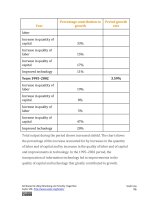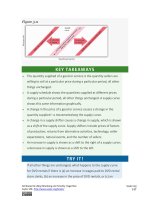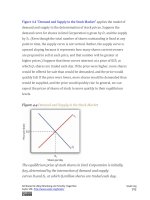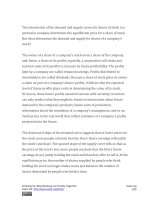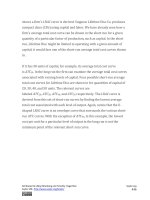Authors libby rittenberg 857
Bạn đang xem bản rút gọn của tài liệu. Xem và tải ngay bản đầy đủ của tài liệu tại đây (382.23 KB, 1 trang )
Cooperative Ventures Abroad
Policymakers who revised U.S. antitrust restrictions on joint ventures
pointed out that Japanese and European firms are encouraged to
cooperate and to collude not only in basic R&D projects, but in production
and marketing as well.
The evidence is difficult to interpret, but in Japan, for example, a
substantial percentage of research projects are sponsored jointly by firms
in the same market. Moreover, the evidence is fairly clear that Japan allows
horizontal consolidations and mergers in moderately concentrated
markets where antitrust policy would be applied in the United States.
Mergers that create substantial monopoly power in Japan are not typically
prosecuted by the government.
In Europe, the potential competitive threat to U.S. firms is twofold. First, as
the European Union (EU) moved toward economic unification in 1992, it
relaxed antitrust enforcement for mergers between firms in different
nations, even though they would become a single transnational firm in the
near future. In 1984, for example, the European Community (EC), the
forerunner of the EU, adopted a regulation that provided blanket
exemptions from antitrust provisions against collusion in R&D for firms
whose total market share did not exceed 20%. This exemption included
horizontal R&D and extended to production and distribution to the point
of final sale. Moreover, firms that had a market share greater than 20%
could apply for an exemption based on a case-by-case examination.
The U.S. government has relaxed antitrust restrictions in some cases in an
effort to make domestic firms more competitive in global competition. For
Attributed to Libby Rittenberg and Timothy Tregarthen
Saylor URL: />
Saylor.org
857
